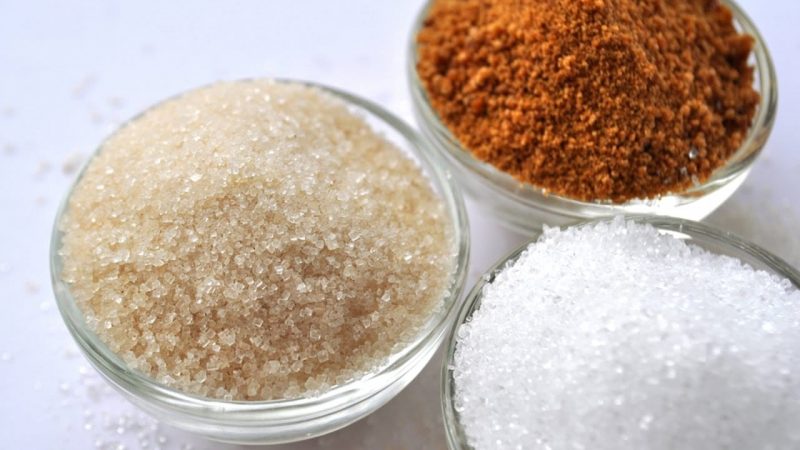Recycling is one of the 5 R’s of the zero-waste movement but it is at the bottom of the list because it is not a waste-free process. However, recycling is very important and it can be a stepping stone for people who are starting off on the journey. If you are currently buying products in non-recyclable packaging, switching to a recyclable packaged product is a step in the right direction and any step is progress. Once we have eliminated all non-recyclable packaging then we can look at our recycle bin and see what else we can do to reduce the waste going into that bin. So before you get to the point where you have to rent a dumpster, why not recycle along the way.
Only 7% of the plastic consumed is recycled. That is a pretty darn depressing number. So, don’t be trashy, RECYCLE! For those of us that do recycle, the most common issue is not knowing for sure what is/is not recyclable and accidentally “recycling” the wrong things which not only end up using more resources but also send items to the landfill anyway. So, here is some information I’ve learned that has helped me maximize recycling efforts at home and at work.
Curbside Recycling
Contents
Hopefully, you are fortunate enough to live in an area that has some curbside recycling program. This makes recycling almost effortless. If you don’t, I suggest you contact your local municipality and ask if there is a recycling drop-off center. There is usually one for hazardous waste (electronics, paints, tires, and such) and there may be options for other household items.
The thing to know about curbside recycling is that it is VERY region-specific and just because an item has a recyclable logo on it, does not mean that it is recyclable in your area. It is imperative that you learn what is and isn’t recyclable in your area so that the items placed in the recycle bin don’t end up in the landfill. For example, my county only recycles plastics #1-#5. My parents live in the adjacent county just a couple of miles over and their county recycles plastics #1-#7. Thus, I keep a separate bin for plastics #6 and #7 and recycle mine elsewhere (i.e. my parents’ house ?).
Curbside Recycling usually accepts these: cardboard boxes from cereals and canned items, aluminum cans, steel cans (e.g. beans), cardboard egg cartons, and plastics #1-5 (some areas may accept plastics #1-7). I was surprised that my curbside recycling program also accepts Tetrapaks (i.e. juice boxes or broth containers) since these are not universally accepted either.
Do NOT include:
- Used pizza boxes (the grease makes them unrecyclable)
- Plastic bags of any kind (these jam the sorting machines)
- Plastic toys
- Plastic film
- Bubble wrap/packaging materials
- Chip bags (or other bags like it)
Plastic bags typically require special recycling machinery and placing plastic bags in with your curbside recycling can end up damaging the sorting machines at the recycling center. However, the good news is that there may be other recycling options available for plastic bags in your area at local retailers.
Plastic Film Recycling
(storefront recycling bins)
Over 18,000 retailers in the U.S. have recycling bins at their locations to collect various kinds of plastic (and even Styrofoam egg cartons or electronics). This is the type of recycling that most people do not know about. At these recycling bin locations, consumers are able to drop off items that are not recyclable curbside such as plastic bags and Styrofoam egg containers (though please seriously consider never buying eggs in Styrofoam and opt for the cardboard cartons instead).
Visit this link to see examples of the types of plastic film that is accepted at retailers across the nation and to find a drop-off location near you: .plasticfilmrecycling.org
The big surprise for me was plastic shrink wrap (e.g. Saran wrap OR the plastic wraps that come around toilet paper packaging, water bottle cases, etc.). I had no idea these could be recycled through these bins also. I now keep a bin in my kitchen to save these to recycle on our next grocery trip.
There are still plastic packaging that is not acceptable at these locations either: You can use the list of non-recyclables below as a “eliminate from my house ASAP” wish list since these items are not recyclable at all and can only be sent to the landfill to a slow, painful death that will impact the planet for ages.
Do not include:
- Degradable/compostable bags or film packaging
- Pre-washed salad mix bags
- Frozen food bags
- Candy bar wrappers
- Chip bags
- Six-pack rings
To avoid the items above, consider buying the individual loose salad fixings, buying fresh vegetables in season and freezing them for later seasons (can freeze in jars), avoiding packaged food like candy, chips, and 6-packs of drinks which are not good for our bodies or the environment.
Hazardous Waste Materials
There are products that cannot be recycled curbside but should not be sent to a landfill with our regular trash due to the toxic contents of the ingredients/materials. We should all be aware of these items and contact our local municipality to determine how to best dispose of them. Typically, there are events held a few times a year for residents to drop off hazardous waste at specific locations or they may be accepted year-round at a recycling center/landfill location.
We have a box in the garage where we put old batteries and/or worn-out electronics to be recycled at the next hazardous waste collection day. Generally, I avoid chemicals that need special disposal instructions like pesticides, paint thinners, and such. We moved into a home where the owner had left behind all kinds of old paints, weed killers, and flammable liquids in the garage. I was at least grateful they didn’t just throw everything in the trash to be done with it, but the inconvenience of having to deal with it discouraged me from ever having to deal with that stuff again.
Mail-In Recycling Programs
Despite our best efforts at recycling locally, there are always odd items where I look and think, “this should be recyclable” but there just isn’t a place for it near me. Here are some of the mail-in programs that I have found and am currently collecting items to ship to be recycled.
Gift Cards
While gift cards to restaurants or movies may be a good experience “less waste” gift, the gift card itself is “waste” unless it’s recycled. The first alternative is asking the retailer if they will take back the gift card and reuse it. Some will and some won’t. If they do not, then you can opt for Earthworks PVC Recycling Program where you can mail in your unused cards (including membership cards, library cards, IDs, or any discount card made from PVC plastic) to be recycled into different/new cards.
Markers
Earlier this year I joined the Crayola Colorcycle Program where I volunteered to collect used markers (color markers, dry erase markers, or highlighters) from any brand, and ship them to Crayola to be recycled. The Crayola Colorcycle is free and all shipping costs are covered by Crayola.
Old Sneakers
As a runner, I wear down my running shoes until they’re so worn out they are no longer donatable. If you have some old sneakers that are so worn down that you cannot donate for someone else to use, then you can mail them to Nike (click here for the address to mail your old shoes) to be recycled. Nike grinds these old shoes and turns them into materials for tracks or fitness equipment.
The moral of the story here is that if you have an item that you need to dispose of, you can do a quick internet search and possibly find a place or program that is able to responsibly dispose of the item rather than sending the item to the landfill. It just takes a little effort on our part. But, let’s also remember that the best way to reduce trash is to just use less stuff and be more conscious consumers. I think it’s fun to challenge ourselves to think outside the box and make do with what we have, find interesting uses for old items and upcycle. When all else fails, it’s nice to know that there may be safer alternatives to dispose of old items.
Are there any items that you are having trouble recycling? What other programs have you found?



